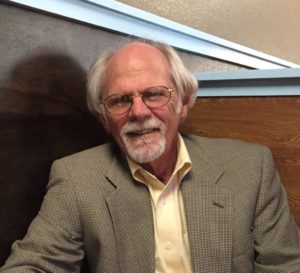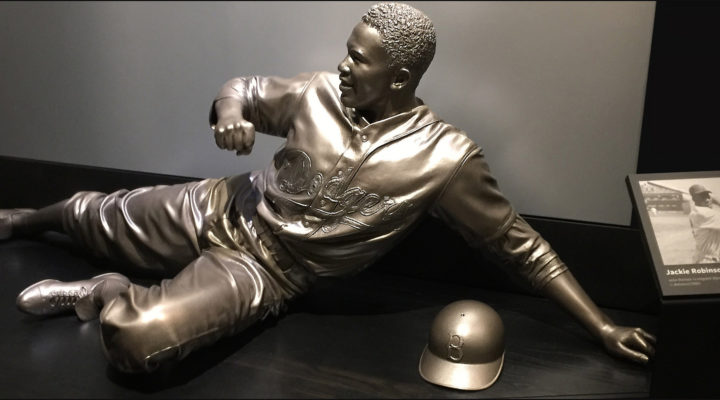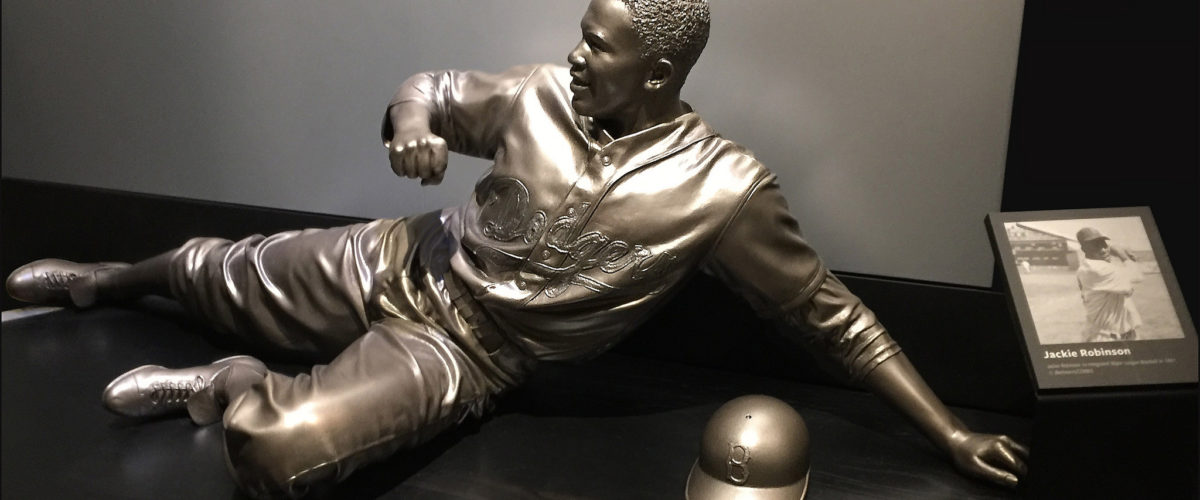As a theology professor at Baylor University, John A. Wood spent years focused on ethics – Christian ethics, business ethics, ethics of war and peace and ethics in film.
In retirement, Wood has turned his ethical expertise to baseball, more specifically on the moral behavior (or lack thereof) of some of the sport’s legendary greats up through the 1950s and ’60s.

John Wood
In Beyond the Ballpark: The Honorable, Immoral, and Eccentric Lives of Baseball Legends, Wood delves into the personal lives and behavior of the likes of Ty Cobb, Babe Ruth, Joe DiMaggio and Jackie Robinson.
Ten years of research went into the book, Wood said, but there were many more decades of baseball devotion that went into it.
“From the time I could remember, there was baseball on radio and on television in our house,” Wood said. “My mother, until her dying day, watched the Atlanta Braves. It just kind of got in my blood when I was young.”
Wood spoke with Baptist News Global how a life spent both loving a game and ethics produced his 2016 book. Here are his comments, edited for clarity.
To start: what’s your favorite Major League Baseball team?
I’m a Texas Rangers fan since I came here (to Texas). We get the Rangers games on television. When I was a kid, for reasons I still don’t understand, I adopted the Cleveland Indians. I just followed them. Being raised in Alabama, there weren’t any pro teams.
What inspired you to research and write this book?
The reason is that I was raised in a family that loved baseball. My dad actually was taught how to play baseball by the uncle of Willie Mays in the Birmingham area. Willie Mays’ uncle was a handyman who worked for my grandparents and he started teaching my dad how to play baseball.
Is it fair to describe this book as an ethical analysis of these athletes?
Yes. I’ve always had an interest in why we do what we do. The whole nature-and-nurture thing. I am just intrigued by human nature and these ball players and what were they like when they weren’t playing baseball, their family lives and what happened to them after their playing days. When baseball was over they didn’t have any money and have any skills, so it was a struggle for many of them.
How deep did your research go?
I have 50 players in the book and it was a 10-year retirement project. I visited the grave sites of all of them. I thought about what they were like, what kind of human beings they were. I tried to make some judgments about them as an ethicist.
What made the good players good?
The way they treated other human beings. Their sense of moral obligation to others. Other players were totally self-centered and self-absorbed. Like Joe DiMaggio. He ended up becoming so self-absorbed and greedy. You see some deterioration with some guys. In others you see improvement. The Texas guy, Tris Speaker, born in the 1890s, started out an angry young man but by the end of his life represented the best of baseball.
You have Ty Cobb in the “Mixed Bag” section of your book. How did he land there?
Ty has not been treated fairly. There certainly was a dark side. He came out of the South not long after the Civil War. He was a racist. But I think he is the most intriguing one out of the whole 50. He was brilliant. He came out of the womb a fighter. But his mother shot and killed his father, and Ty adored his father. And I don’t think Ty ever got over that. It left a scar on him. His mother was tried for murder and was acquitted, and Ty had a nervous breakdown at 19 or 20. That did psychic damage to him. But he helped a lot of ballplayers. Remember, players didn’t make a lot of money back then. He was the first ballplayer to become a millionaire. He would help players and give them money and he set up a scholarship fund that, to this day, is sending kids to college in Georgia. He was a very complex human being.
What gets a player into the “eccentrics” group?
You have to be a little weird. And all these guys were. Some of these guys were just hilarious, like Casey Stengel. And you have to put Babe Ruth in there – his incredible skill and yet his enormous appetite for food and sex. And you read the stories of what this guy did, it was unbelievable. This (Rube) Waddell guy was just a true flake. Nutty as a fruit cake, yet a brilliant left-handed pitcher. He would play marbles with kids under the stands instead of being where he needed to be. And Satchel Paige, the stuff he did. They were all very colorful.
You write about Jackie Robinson’s raging battle against racism. Would he be doing the same today?
Oh yeah. I think he would. That was part of his nature. Jackie was a fighter and wanted to call attention to every kind of slight and injustice. I think he died young for that reason – the psychic toll it took on him because he was always having to fight.
Were baseball players the Kardashians of their era?
They were. Back then it was baseball and boxing. At that time boxer Jack Dempsey became an idol and from there on out heavyweight fighters like Rocky Marciano were held up as heroes. And the baseball players were just ahead of them. But one difference is that the writers of the time didn’t really talk about the faults of these guys. People didn’t want to hear that. Early on the private lives, the writers didn’t cover that. The writers respected the players’ private lives. Nowadays everything is going to end up on the internet. You blow your nose wrong and it’s going to show up.
What practical lessons come from your research?
It’s about how human nature plays out across all the generations. There is a sense that human nature has always been the same. We are created in God’s image and we are capable of great good. But there is something there that pulls us in the opposite direction.


